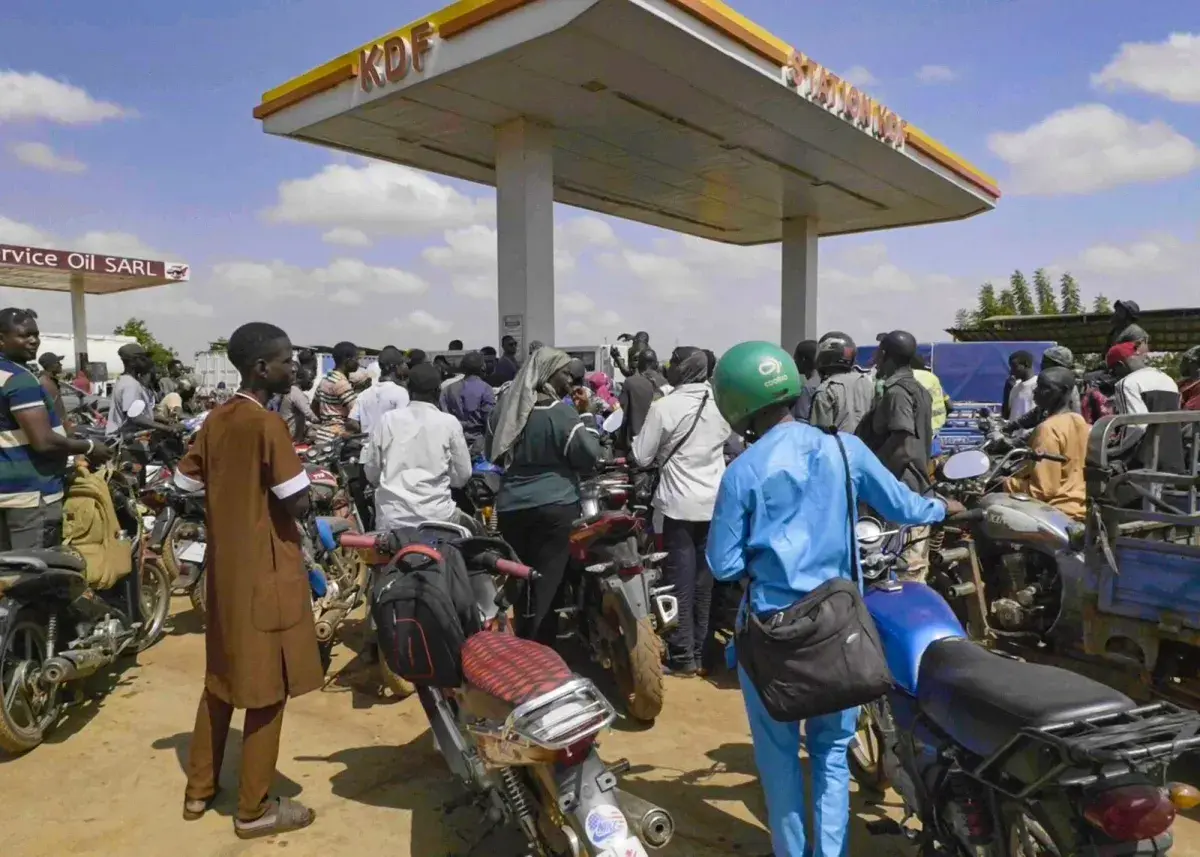Copyright Newsweek

The U.S. Embassy in Mali has advised that Americans leave the country immediately because of an increased unpredictability of its capital city's security. "Persistent infrastructure challenges in Mali including continued disruptions of gasoline and diesel supplies, the closure of public institutions such as schools and universities nationwide, and ongoing armed conflict between Malian government and terrorist elements around Bamako increase the unpredictability of Bamako’s security situation," the embassy said. Newsweek has contacted the U.S. State Department for comment via email outside regular working hours. Why It Matters The State Department's travel advisory lists Mali as a Level 4 country, meaning the department advises Americans not to travel to the West African country "for any reason due to crime, terrorism, kidnapping, unrest" and issues relating to its health services. Crime and unrest have become major concerns in Mali after militants in Jama’at Nusrat al-Islam wal-Muslimin, a group affiliated with Al-Qaeda, imposed blockades on fuel imports—resulting in ongoing armed conflict, nationwide fuel shortages, and the closure of schools and universities. Mali, along with some neighboring countries, has been battling an influx of armed groups, such as local rebels and allies of Al-Qaeda and the Islamic State group. What To Know U.S. citizens have been told to depart as soon as possible using commercial aviation. The international airport in Bamako, Mali's capital, remains open and flights are available, the embassy said on Tuesday. The embassy has specifically advised air travel, warning that overland travel may not be safe because of terrorist attacks along national highways. It also warned that those who chose not to leave should "prepare contingency plans for any emergency situations," which includes potentially finding a place to shelter for an extended period. The embassy has also advised Americans not to visit the country, matching the guidance given by the State Department's Level 4 advisory. The embassy also warned that Americans should avoid public demonstrations and driving through roadblocks, exercise vigilance and caution, and keep a low profile, among other measures. In its advisory, the State Department said Americans in Mali should draft a will and make plans with loved ones regarding care or custody of children, pets, property, belongings, nonliquid assets and funeral wishes. It also advised leaving DNA samples with a medical provider for possible identification purposes. What People Are Saying The U.S Embassy in Mali said on Tuesday: "U.S. citizens currently present in Mali should depart immediately using commercial aviation. The international airport in Bamako remains open and flights are available. U.S. citizens should depart using commercial aviation, as overland routes to neighboring countries may not be safe for travel due to terrorist attacks along national highways. U.S citizens who choose not to depart Mali should prepare contingency plans for any emergency situations that may arise, including a need to shelter in place for an extended period. "U.S. citizens should continue to avoid travel to Mali. The U.S. Embassy in Bamako is unable to provide emergency services or support to U.S. citizens outside the capital. Please use caution when traveling in Mali and contact the U.S. embassy using the contact information below in the event of an emergency." The State Department said on its Mali travel advisory: "On October 24, 2025, the Department of State authorized non-emergency personnel and family members of U.S. government employees to leave Mali due to safety risks. The U.S. government cannot offer routine or emergency services to U.S. citizens outside of Bamako due to safety risks. Do not travel to Mali for any reason." What Happens Next It is likely that the unrest and crime in Mali will continue. Americans in Mali should make plans to use commercial aviation to leave the county. This article contains reporting from the Associated Press.



